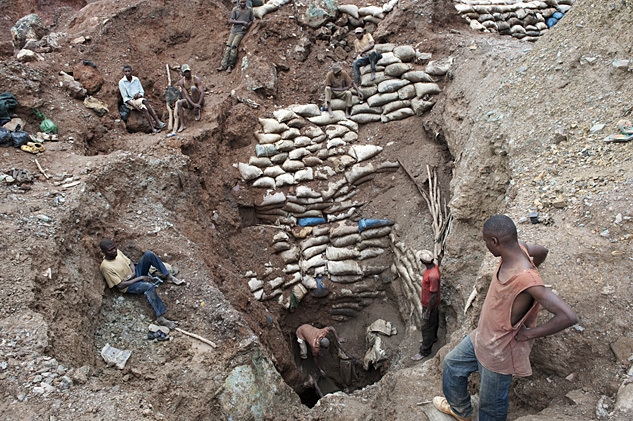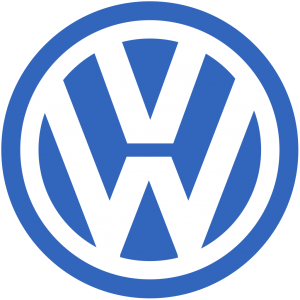
Congo Ruashi Mine Cobalt
Glencore & Volkswagen: When car manufacturers entered mining.
The inside report on how VW tried to buy up the cobalt market.
In November last year executives of the car giant VW visited the Wolfsburg football stadium in Germany.
The stadium is located on the edge of a huge auto complex built in the Xnumxer years, complete with two power plants, a test track and its own sausage factory. With more than 1930 plants worldwide that produced 100 billion (231 billion dollars) and 259 million vehicles last year, VW is the largest automobile company in the world, ahead of Toyota and General Motors. The task of the top executives on this day was to secure the future supply of cobalt, a rare metal that is critical to the production of electric car batteries, and the next generation of VW vehicles, from the hatchback to the all-electric truck to back up.
According to Bank BMO, there are about 10 kg of cobalt in an electric car battery, and prices have gone from 23.000 to 58.000 per tonne in the last three years as electric cars have become a mass market reality. But with tight inventories, the auto companies will not make the transition to electrical engineering, if they do not get the required metals.
In Wolfsburg, at the other end of the table, sat Franck Schulders, a trader for Swiss commodity giant Glencore, the world's largest cobalt producer. Also in the mining industry, Schulders is still unknown as head of cobalt trading for Glencore, which is known for its self-confident, non-adherent culture.
Both companies were eager to make a deal: Glencore had largely brought the luck into its cobalt position, which was a by-product of its non-ferrous metal mines from Africa to the Arctic Circle, and wanted to benefit from rising prices. But the talks failed almost immediately. Both sides went apart.
The stumbling block was the price. While Glencore wanted a mega-deal, VW was not used to working with a mining company. From aluminum wheels to the steel chassis of a car, it is more used to buying metal just-in-time at market prices and hedging every risk through its Frankfurt banks.
Instead, it has been required to provide huge sums of money for a niche that may not even be used in automobiles in five years: battery technology is changing rapidly, and cell makers like Sony and Panasonic are increasingly taking cobalt out of their battery packs and applying new, higher-end methods Use of nickel, aluminum and manganese.

In addition, major uncertainties in the automotive industry, from government incentives over vehicle sharing to a global lack of charging stations and cobalt, the value of which is barely adequate. Kilometers away from one another in pricing, Glencore and VW Wolfsburg left unfulfilled.
“The automotive companies don't understand mining well enough, that's obvious,” says the director of a company that competes against Glencore in the battery metal market. Automakers have "huge investment commitments over the next decade just to make this transition, so their priorities are to get on with their real core business, but they also realize they can't miss the raw materials boat."
Four months after Wolfsburg VW announced a 25 billion dollar deal with battery companies such as Samsung and LG Chem. It's one of the biggest purchasing deals the automotive industry has ever made and has already been expanded to 48 billion dollars.
16 Volkswagen factories will start mass production of electric vehicles until 2022, after being three at the moment. A day later, Glencore agreed to sell about one-third of its future cobalt to GEM, a recycling company in China.
"With electric vehicles, it's not about protecting the environment," explains a mine director. “Electric vehicles are about who can dominate the global automotive industry. China knows they'll never catch up with the Europeans or Japanese in developing an internal combustion engine, but they can skip the technology by stepping straight up to an electric powertrain. That is really what this topic is all about. "
Electric cars have changed the dynamics of the metal market, according to mine investor Robert Friedland. From Tesla to VW, large metal buyers have taken the offer for granted, but are now forced to negotiate with mining companies. In addition to cobalt, there are about 80 kg of copper in an electric car, about four times as much as in petrol or diesel vehicles, and the auto companies are struggling to get the raw materials onto the market.
“There are not enough batteries and not enough electric motors,” said Renault boss Carlos Ghosn at a press conference at the Paris Motor Show earlier this month. "We cannot meet the demand." It is the "revenge of the miners," says Friedland, who invests in copper, platinum and cobalt in Africa and Australia.

Others say it is a mutual trade. Although Glencore has sold its tonnage to China, the company is longing for a good relationship with VW, its insiders say.
California-based Tesla dominates headlines in the electric car market but is struggling to ramp up production, while Volkswagen has the capacity and clout to dominate the industry for decades to come. In 2019, the company plans to showcase a new electric vehicle almost every month. The sister companies, including Audi and Porsche, are also making the leap: Porsche is pumping 7 billion dollars into its electric division and last month committed to making its future “diesel-free”.
Glencore also tries to mitigate its cobalt problem in the eyes of consumers. Most of the production comes from mines in the Democratic Republic of the Congo, one of the most corrupt countries in the world, where automotive companies have already been criticized for processing metal mined under dangerous conditions.
Glencore is currently being investigated by bribery and corruption investigators for its links to Dan Gertler, an Israeli mining billionaire who has been sanctioned by the US for his "close relationship" with the government of the Democratic Republic of the Congo. Consumer protection groups are now under increased pressure to act when it comes to blacklisting companies' supply chains and classifying them with questionable practices: Panasonic recently blocked a mining company's cobalt shipments because it feared it would violate US sanctions violates, the London Metal Exchange has banned contracts that do not conform to guidelines and Daimler, which owns Mercedes, has committed to audit cobalt, which is tracked down to the mine level.
The ultimate winners from Wolfsburg can be those mining companies that produce specialty metals and not endanger their reputation in volatile countries. "The automotive sector has become aware of the risks surrounding the raw material supply chain," says Sam Riggall, former lawyer for Rio Tinto, who is now chairman of the board of ASX-listed CleanTeq, which is expanding a nickel-cobalt complex in Australia.
“I see a really strong interplay between mining companies and automakers.” Riggall says. "I've never seen a time in my career when the entire supply chain integrates to solve a problem."
Global Mining Observer / ISE - September 2019
